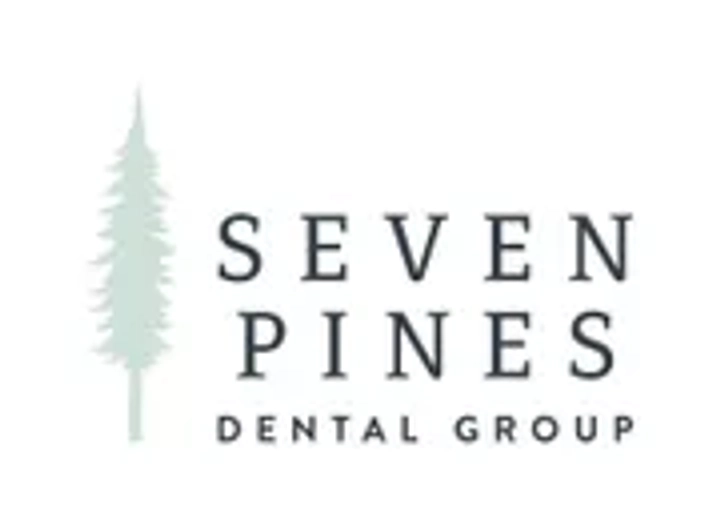At Seven Pines Dental, we believe that a healthy smile doesn’t just come from cleanings and checkups. It also comes from your everyday habits, especially what you eat and drink. While brushing, flossing, and regular dental visits are essential, your diet can play a major role in either strengthening your teeth or putting them at risk for cavities, gum disease, and other problems. The good news is that understanding the link between your food choices and your oral health can help you protect your smile for years to come.
Here’s a closer look at how what you eat affects your dental health and what steps you can take to keep your teeth and gums in great shape.
The Trouble with Sugar and Simple Carbs
You’ve probably heard that sugar is bad for your teeth. That’s true, but it’s not just about candy. Sugar is found in a lot of foods, including items you might not think of as sweet, like white bread, pasta, crackers, and even some condiments. When sugar enters your mouth, bacteria feed on it and create acids that break down tooth enamel. Over time, this process can lead to tooth decay and cavities.
Sugary drinks are particularly harmful. Soda, sweet tea, sports drinks, and even fruit juices can wear away enamel due to their combination of sugar and acid. Sipping these drinks throughout the day makes things worse because your teeth are constantly exposed to acid. If you enjoy these drinks occasionally, try to have them with meals and follow up with water to rinse your mouth.
The Power of Crunchy Fruits and Vegetables
Not all foods are bad for your teeth. In fact, some are incredibly helpful. Crunchy fruits and vegetables like apples, celery, and carrots do more than just provide vitamins. Their texture helps clean your teeth by scraping away bits of plaque and food debris as you chew. They also stimulate saliva production, which naturally rinses your mouth and neutralizes acids.
Leafy greens like spinach, kale, and romaine are packed with calcium and folic acid, both of which support gum and bone health. The fiber in these foods also helps keep your digestive system moving, which is good for your overall well-being, including your oral health.
Dairy products like cheese, yogurt, and milk are also tooth-friendly. They’re rich in calcium and phosphorus, which help repair and protect tooth enamel. Cheese in particular, helps reduce the acid level in your mouth, creating a healthier environment for your teeth.
Foods That Seem Healthy but Can Harm Teeth
Sometimes foods that are generally considered healthy can still cause problems for your teeth. Take citrus fruits, for example. Oranges, lemons, and grapefruits are great sources of vitamin C, but they’re also acidic. Frequent exposure to acid can wear down enamel, especially if you have these fruits on their own or as juice. If you love citrus, try eating it as part of a meal rather than on its own, and rinse your mouth with water afterward.
Dried fruit is another tricky one. While it’s made from whole fruit, it tends to be sticky and high in natural sugars. It clings to your teeth and gives bacteria more time to produce harmful acids. If you snack on dried fruit, it’s best to brush your teeth or rinse with water afterward.
Even some “healthy” packaged foods can be misleading. Many granola bars, flavored yogurts, and store-bought smoothies are loaded with added sugars. Reading ingredient labels and being aware of how much sugar is in the foods you eat can help protect your teeth.
Why Water is a Dental Superhero
One of the best things you can do for your dental health is to drink plenty of water. Staying hydrated helps your body in many ways, and it’s especially important for your mouth. Water keeps your saliva levels up, and saliva plays a big role in protecting your teeth. It helps wash away food particles, neutralizes acids, and strengthens enamel with minerals like calcium and phosphate.
Fluoridated water is even better. Fluoride is a mineral that helps prevent tooth decay by making enamel more resistant to acid attacks. Most public water supplies contain fluoride, but some bottled waters do not. If you mostly drink bottled or filtered water, check the label to see if it includes fluoride.
Cutting back on alcohol and caffeine is also helpful since both can dry out your mouth. A dry mouth makes it easier for bacteria to multiply and harder for your teeth to defend themselves.
Snacking and Meal Timing Matter Too
The timing of your meals and snacks also impacts your dental health. Every time you eat, the bacteria in your mouth get to work breaking down food, producing acid in the process. If you’re snacking constantly, your teeth are under frequent acid attack. This can lead to enamel erosion and eventually cavities.
Try to limit how often you snack and choose foods that are less likely to stick to your teeth. Nuts, cheese, and raw vegetables are great snack options. If you do enjoy a sweet treat, it’s best to have it with a meal instead of on its own. Your mouth produces more saliva during meals, which helps clean your teeth more effectively.
Nutrients That Support Strong Teeth and Gums
A well-balanced diet doesn’t just help your body. It helps your gums, bones, and immune system, too. Nutrients like vitamin C, vitamin D, calcium, and omega-3 fatty acids all contribute to better oral health. Vitamin C supports gum health and helps your body heal. Calcium strengthens teeth and bones. Vitamin D helps your body absorb calcium more efficiently. Omega-3s help reduce inflammation, which is especially helpful if you’re managing gum disease.
Eating a variety of whole foods, including fruits, vegetables, lean proteins, and healthy fats, supports your entire body. And when your body is in good shape, your mouth is too.
Helping Kids Build Healthy Habits Early
Good dental habits should start young. Teaching kids to choose healthy snacks and drinks can help them avoid cavities and set the stage for strong oral health later in life. Encourage crunchy fruits and vegetables, plain milk or water instead of sugary drinks, and limit treats to special occasions.
Avoid sending children to bed with bottles or sippy cups filled with anything other than water. Prolonged exposure to milk or juice overnight can cause baby bottle tooth decay. Brushing twice a day and visiting the dentist regularly are just as important for kids as they are for adults.
Making oral health a regular part of the family routine can make it easier for kids to understand the importance of good choices. When healthy habits feel normal, they’re more likely to stick.
Small Changes Make a Big Difference
You don’t need to change your entire diet overnight. Small steps like cutting back on sugary drinks, adding more veggies to your plate, or drinking more water can make a real difference in your dental health. Every smart choice adds up over time.
If you’re dealing with recurring cavities, tooth sensitivity, or gum issues, your diet could be a contributing factor. Talk with your dentist about your eating habits. We’re here to help you make informed choices that support both your teeth and your overall well-being.
We’re Here to Support Your Smile
At Seven Pines Dental, we believe in taking a whole-person approach to dental care. That means helping you understand how nutrition, lifestyle, and habits all come together to impact your smile. Whether you’re looking to improve your own oral health or support your child’s, we’re here to guide you every step of the way.
Contact Seven Pines Dental today to schedule your consultation. We have three convenient locations:
- White Oak – Ph: 804-737-2403
- Sandston – Ph: 804-737-7402
- Mechanicsville – Ph: 804-730-1424
Let’s work together to keep your smile healthy, strong, and bright for years to come.







